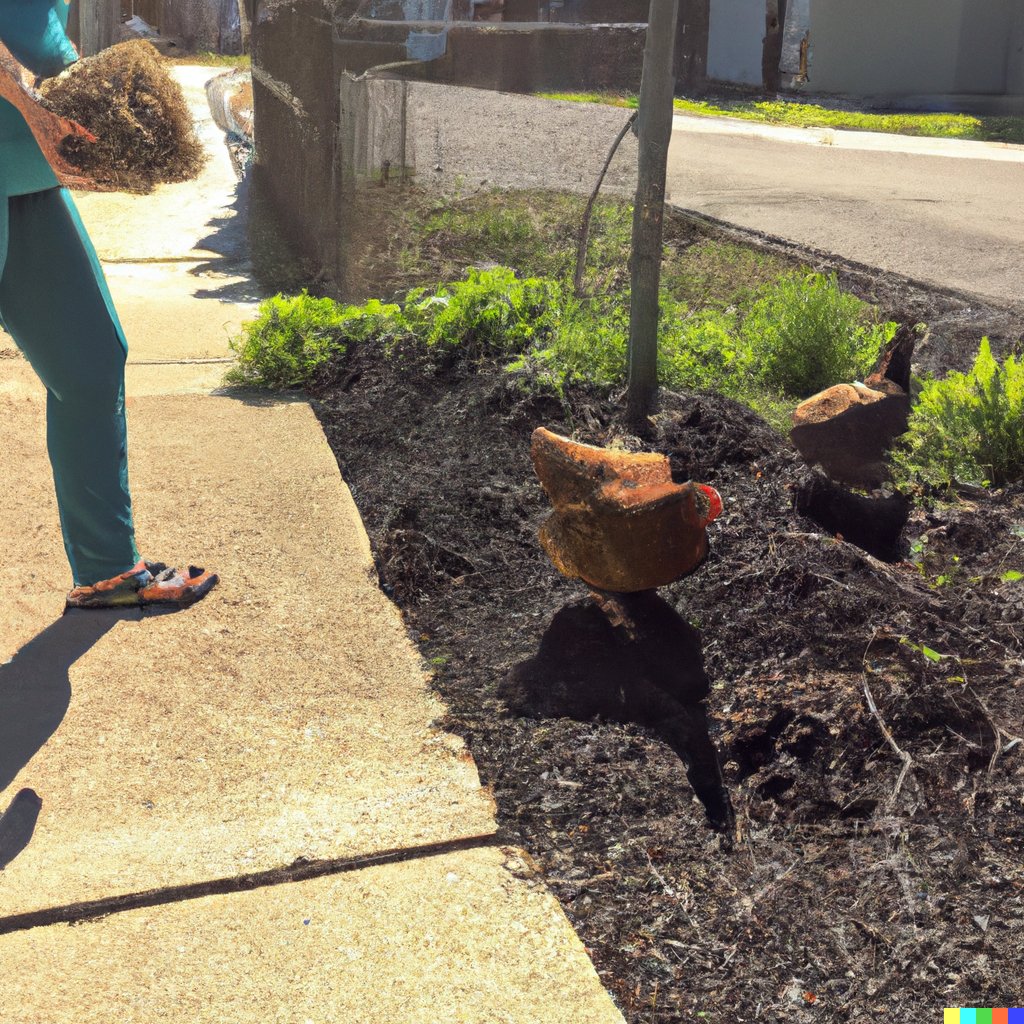
Just like human health depends on the food, plant health depends on the soil. Taking care of the soil is a fundamental practice in agriculture and gardening, as it directly impacts the immune system and vitality of the plants grown in it. While it may seem more intuitive to focus solely on plant care, nurturing the soil provides a strong foundation for overall plant health and sustainable agriculture. Here's why soil care takes precedence over plant care:
1. Soil Nourishment:
Healthy soil is rich in essential nutrients that plants need for growth. By enriching the soil with organic matter, compost, and natural fertilizers, we provide a diverse array of nutrients for plants to thrive.
2. Root Development:
Healthy soil structure allows roots to penetrate and spread, promoting better nutrient and water absorption. Strong, well-developed root systems lead to healthier and more resilient plants.
3. Water Retention:
Properly cared for soil has good water-holding capacity, preventing excessive runoff and ensuring water availability for plants during dry periods. Adequate water supply supports plant growth and minimizes water wastage.
4. Nutrient Cycling:
Healthy soil fosters nutrient cycling, where organic matter is decomposed and transformed into nutrients accessible to plants. This natural process enhances nutrient availability and minimizes nutrient loss.
5. Disease Resistance:
Well-balanced soil with good microbial activity contributes to disease suppression. Beneficial microorganisms in the soil can protect plants from harmful pathogens, reducing the need for chemical interventions.
6. Sustainable Agriculture:
Caring for the soil is an integral part of sustainable agriculture. By maintaining soil health, we reduce the reliance on synthetic fertilizers and pesticides, which can have adverse environmental impacts.
7. Carbon Sequestration:
Healthy soil plays a crucial role in carbon sequestration, helping mitigate climate change. By promoting soil health, we support carbon storage in the form of organic matter.
8. Long-Term Plant Health:
Focusing on soil care ensures the long-term health and productivity of plants. Healthy soil sustains a diverse ecosystem, fostering plant resilience and adaptability to changing environmental conditions.
9. Soil Erosion Prevention:
Well-maintained soil structure with adequate ground cover minimizes soil erosion, preventing the loss of valuable topsoil and protecting against land degradation.
10. Biodiversity Support:
Healthy soil supports diverse life forms, from microorganisms to beneficial insects. A thriving soil ecosystem contributes to overall biodiversity and ecosystem stability.
Frequently Asked Questions (FAQ) - Caring for the Soil vs. the Plant
1. Why is soil care more important than plant care?
Soil care takes precedence over plant care because healthy soil provides essential nutrients, water retention, and a supportive environment for plant growth. Nurturing the soil lays the foundation for strong, resilient plants and promotes sustainable agriculture.
2. How does soil nourishment benefit plant growth?
Healthy soil is enriched with essential nutrients that plants need for their development. By providing a diverse array of nutrients through organic matter and compost, we support optimal plant growth and productivity.
3. What role does soil structure play in root development?
The soil's structure affects root penetration and spread. Well-structured soil allows roots to grow freely, facilitating better nutrient and water absorption, leading to healthier and more vigorous plants.
4. Can proper soil care help with water retention?
Yes, caring for the soil improves its water-holding capacity, preventing excessive runoff and ensuring a steady water supply for plants. Adequate water retention supports plant growth even during dry periods.
5. Does healthy soil contribute to disease resistance in plants?
Healthy soil with good microbial activity can suppress plant diseases. Beneficial microorganisms in the soil act as natural protectors, helping plants resist harmful pathogens.
6. How does soil care contribute to sustainable agriculture?
Caring for the soil reduces the reliance on synthetic fertilizers and pesticides, promoting more sustainable agricultural practices. This approach protects the environment and supports long-term food production.
7. Does soil health impact carbon sequestration?
Yes, healthy soil plays a significant role in carbon sequestration. It helps store carbon in the form of organic matter, contributing to efforts to mitigate climate change.
8. What are the long-term benefits of focusing on soil care?
Prioritizing soil care leads to long-term plant health and productivity. It creates a supportive ecosystem, ensuring plants remain resilient and adaptable to changing environmental conditions.
9. Can soil care help prevent soil erosion?
Yes, maintaining soil structure and ground cover minimizes soil erosion. Proper soil care helps retain valuable topsoil and protects against land degradation.
10. How does soil care support biodiversity?
Healthy soil fosters diverse life forms, from microorganisms to beneficial insects. A thriving soil ecosystem enhances overall biodiversity and contributes to ecological stability.
Conclusion
Caring for the soil is essential for nurturing healthy and productive plants. Prioritizing soil health ensures nutrient-rich environments, strong root systems, disease resistance, and long-term plant vitality. By investing in soil care, we create a sustainable and thriving agricultural ecosystem that benefits not only plants but also the environment and our future generations.
In summary, caring for the soil is vital because it lays the groundwork for successful plant growth and sustainable agricultural practices. By prioritizing soil health, we promote nutrient-rich environments, robust root systems, disease resistance, and long-term plant vitality. Ultimately, nurturing the soil benefits not only the plants but also the entire ecosystem and our efforts toward a more sustainable future.







.jpeg)






